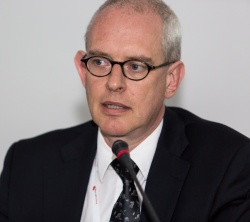Politics
EU aims to avoid opioid epidemic
In the USA, there is already talk of an ‘opioid epidemic’. Whereas in the past 20 years some 100,000 people died directly or indirectly through prescribed opioids, reports indicate that more than 16,000 died in 2010 alone. Since the sales of opioid analgesics quadrupled between 1999 and 2010 recent debates have intensified surrounding the use of opioids for non-tumour-related pain in the USA, as well as Canada and Australia, with dependency and risks moving into the spotlight. The US Food and Drug Administration (FDA) restricted the indication for prescribing opioids and demanded that manufacturers conduct more studies on risks, such as abuse, addiction, excessive pain sensitivity, overdoses and fatalities.

This trend has reached Europe: The European Council has initiated a discussion of abuse and dependency on medications, with a focus on opioid analgesics.
European pain experts are worried about this development. Professor. Bart Morlion, president-elect of the European Pain Federation EFIC, warned those attending the 9th Congress of the European Pain Federation, in Vienna, against exaggerated caution; not to toss the baby out with the bathwater: ‘Opioids provide important therapeutic options in bringing relief from acute and chronic pain. We should not re-stigmatise these analgesics, but instead clarify how they can be used safely and effectively.’
The professor is emphatically against generalising USA data and applying them to Europe. The abuse problem is virulent mainly in North America and Australia, since prescriptions are less regulated than in Europe, where access is strictly regulated by special prescription forms, or the addictive substances registry: ‘Reports on increasing problems with opioids, particularly from North America, are mostly related to long-term prescription with a lack of careful patient selection and patient reassessment.’ In some US states, so-called ‘pill mills’ – medical facilities that prescribe controlled substances without regard for guidelines and indicators – are allegedly responsible for numerous opioid-related fatalities. ‘There are certainly many good reasons for the increase in prescription rates. However, in future more care needs to be taken to ensure that opioids are the right choice for the individual patient,’ Prof. Morlion emphasises. ‘Opioids are not without side effects. For this reason they should only be prescribed in cases where there is a good balance between pain relief and side effects, where there are long-term benefits, and where other methods of treatment have failed.’
It cannot be that abuse in some parts of the world leads to a global call for restrictions that could mean insurmountable hurdles for those urgently needing opioids for pain control.
Therefore, the European professional society seeks a reasonable approach between dramatic undersupply, over-prescription and the abuse problem. EFIC commissioned a working group to prepare Europe-wide recommendations for an appropriate and responsible handling of opioids, especially in long-term therapy of chronic pain. With recommendations expected this autumn, Prof. Morlion expects the ‘… guidelines should provide doctors throughout Europe with support and advice for optimal use of opioid analgesics that’s easy to put into practice.’
PROFILE:
Anaesthesiologist, intensive care physician and pain expert Bart Morlion MD is president-elect of the European Pain Federation EFIC. He studied at the University of Leuven, Belgium, and completed a specialist residency at the Ruhr University, Bochum, Germany. He returned to Leuven in 1998 to become professor in the Department of Cardiovascular Sciences and head of the multidisciplinary pain centre. From 2006 until 2012 Morlion presided over the Belgian Pain Society and is the principal investigator in 28 national and international multicentre clinical trials (Phases II, III and IV).
11.02.2016





